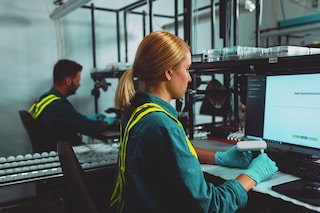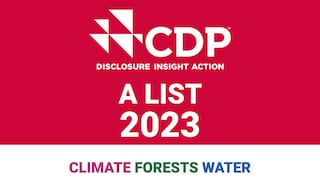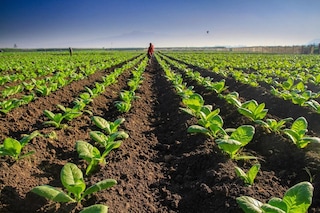
Our 2025 Roadmap goal
see our full 2025 roadmapTACKLE CLIMATE CHANGE
Achieve carbon neutrality in our operations and accelerate our decarbonization toward net zero across our value chain.
Key performance indicators to track our progress
In 2024 , our CO2e scope 1+2 emissions decreased by 39 percent (2023: 40 percent) versus our 2019 baseline and our net CO2e scope 1+2+3 emissions decreased by 15 percent within the same time frame.

See full performance metrics
view dataLearn more about PMI’s Sustainability Index in our Integrated Report 2024. See the full performance metrics and related footnotes here.
The right thing to do
The effects of climate change impact human rights, biodiversity, water access, global health, and food security, and intensifies environmental threats such as ecosystem degradation, drought, flooding, and desertification.
Read moreThe business case
Climate change and its effects can threaten our business continuity and endanger our supply chain—especially our agricultural supply chain which is particularly sensitive to abrupt climate variations.
read more
Our progress in 2024
Read more in our Integrated ReportThis online content about our Integrated Report should be read in conjunction with PMI’s Integrated Report 2024. This report includes metrics that are subject to uncertainties due to inherent limitations in the nature and methods for data collection and measurement. The precision of different collection and measurement techniques may also vary. This report includes data or information obtained from external sources or third parties. Unless otherwise indicated, the data contained herein cover our operations worldwide for the full calendar year 2024 or reflect the status as of December 31, 2024. Where not specified, data comes from PMI financials, nonfinancials, or estimates.
Unless explicitly stated, the data, information, and aspirations in this report do not incorporate PMI’s wellness and healthcare business, Aspeya. Regarding the Swedish Match acquisition, completed late 2022, unless otherwise indicated, this report includes information pertaining to its sustainability performance. Please also refer to "This report at a glance" on page 2 of the PMI’s Integrated Report 2024 for more information. Aspirational targets and goals do not constitute financial projections, and achievement of future results is subject to risks, uncertainties and inaccurate assumptions, as outlined in our forward-looking and cautionary statements on page 206. In PMI’s Integrated Report 2024 and in related communications, the terms “materiality,” “material,” and similar terms are defined in the referenced sustainability standards and are not meant to correspond to the concept of materiality under the U.S. securities laws and/or disclosures required by the U.S. Securities and Exchange Commission.










